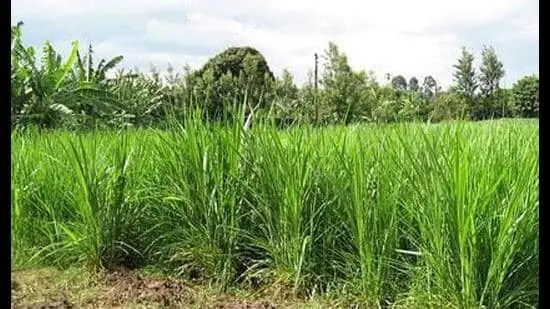
Farmers in the Prayagraj division are facing a severe productivity crisis as years of excessive use of chemical fertilisers have degraded soil health and slashed crop yields, according to a new study by the state agriculture department.
An extensive analysis of over 1.2 lakh soil samples by the Regional Soil Testing Laboratory, Prayagraj, revealed alarming declines in organic carbon, nitrogen, and phosphorus levels -- key indicators of soil fertility, officials said.
“The soil health across the division has deteriorated sharply,” said Piyush Rai, assistant director, Regional Soil Testing Laboratory.
“Our tests on 84,400 Kharif and 36,440 Rabi crop soil samples from Prayagraj, Pratapgarh, Kaushambi, and Fatehpur districts show that organic carbon levels have fallen well below the standard 0.5-0.75% range,” Rai said, attributing the drop to long-term overuse of chemical fertilisers and pesticides.
“Farmers have been depending on chemicals for years to boost yields, but this has backfired -- damaging soil, reducing productivity, and driving up cultivation costs,” he said.
According to Pawan Kumar Vishwakarma, deputy director (agriculture), Prayagraj, productivity has dropped significantly between 2020-21 and 2023-24. Wheat yields fell from 28.15 to 24.04 quintals per hectare, maize from 18.25 to 12.89, barley from 20.4 to 16.5, pearl millet from 12.32 to 9.13, and paddy from 31.90 to 28.40 quintals per hectare.
In response, the department has launched an intensive campaign to promote organic and natural farming. “We are encouraging cow-based natural farming as a sustainable alternative,” Vishwakarma said.
According to SK Rai, joint director (agriculture) and in-charge of Prayagraj division, 27,409 farmers across 892 clusters in Prayagraj, Fatehpur, Kaushambi, and Pratapgarh have already adopted natural farming practices, covering 17,965 hectares of farmland.
Farmers adopting the approach are beginning to see positive results. Umesh Patel, a farmer from Ramaipur village in Phulpur tehsil, said his maize yields and profits had plummeted due to years of chemical use.
“After switching to natural farming, I now grow chemical-free maize on 10 hectares and earn over ₹10 lakh in a single season,” he said.
Under the Bhartiya Prakritik Krishi Paddhati Yojana, the state government is offering financial assistance to farmers practising natural farming -- ₹4,800 per acre in the first year, followed by ₹3,600 per acre in each of the next two years. Additional funds are being allocated for organic seed management, officials said.
Women are also being encouraged to take part in this green shift. As part of the initiative, rural women are being trained and appointed as ‘Krishi Sakhis’ (farm friends) to spread awareness of natural farming. After completing training at 13 Farmer Development Centres, these women are now working across the region. Each ‘Krishi Sakhi’ receives a monthly honorarium of ₹5,000, officials explained.
